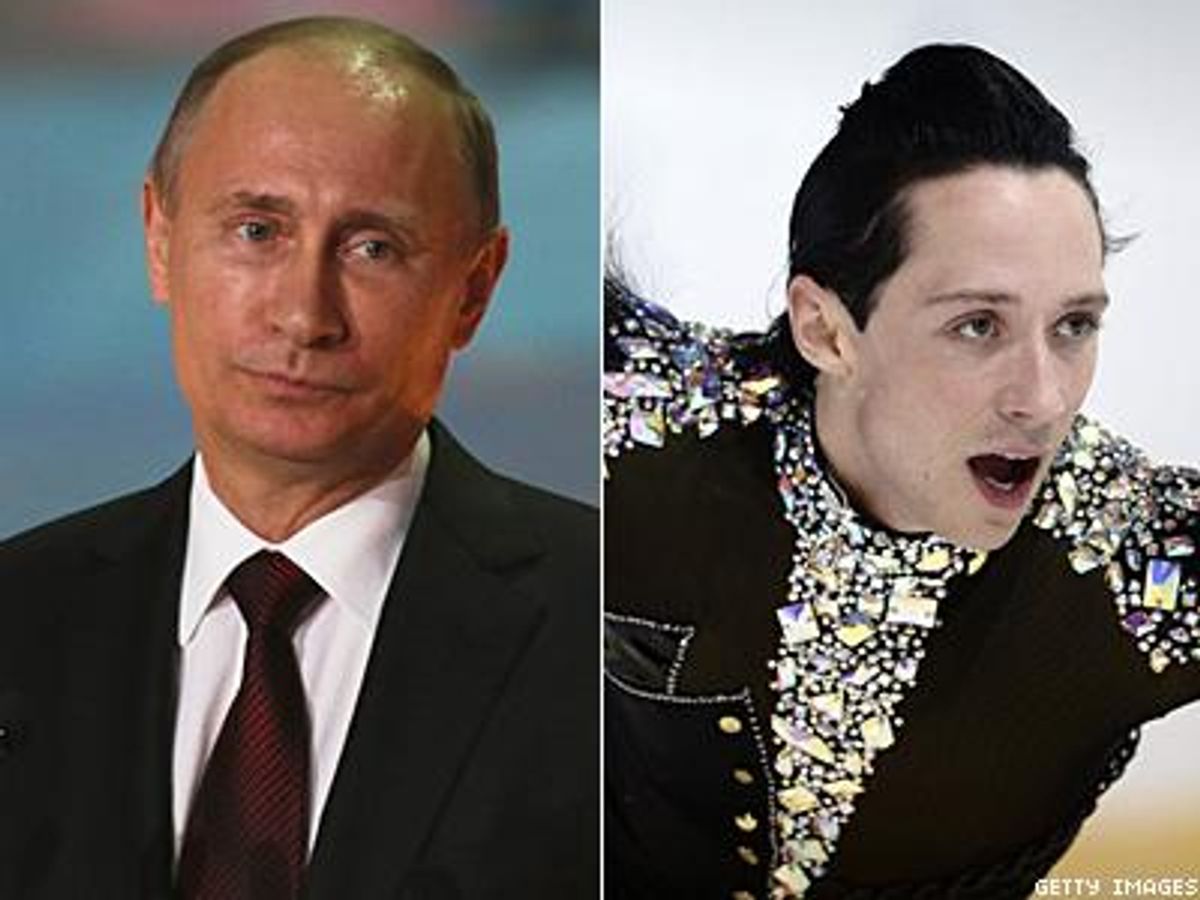The Winter Olympics are about to get complicated, at least for gay and lesbian athletes and anyone supportive of them.
Already Russian officials had rejected an application for a Pride House at the 2014 Olympic village in Sochi. But USA Today reports that Russia's antigay political climate is on the verge of overshadowing the events.
If the Russian parliament passes a so-called gay propaganda bill now being considered, and backed by President Vladimir Putin, the effects on the games are unclear. Already lawmakers have given it preliminary approval on a vote of 388 to 1 by members of the State Duma.
Under the law, anyone caught doing anything that the government says promotes being gay to young people will face punishment. Madonna was famously sued under a similar version of the law in St. Petersburg for defiantly making pro-gay statements from stage during a concert and passing around bracelets in solidarity with LGBT people. A judge ruled against fining the pop star, who ignored requests to show up at hearings.
The Olympics are reportedly of great personal importance to Putin, with NBC News profiling the president's hands-on approach to hosting the games. The "Pride House" was included for the first time during London's Summer Olympics. But the Russian Ministry of Justice has already said no to the idea, and courts have backed up the decision, inciting activists to organize protests in London in response.
U.S. soccer star Megan Rapinoe, who came out before the last games, told USA Today, "If I was just a gay fan going to Sochi, I don't know. If the law passes, I would definitely be breaking the law. Hopefully it won't deter gay athletes from being who they are."
Protesters against the antigay law were met with beatings in January. Photos of self-proclaimed members of the Russian Orthodox Church pummeling bloodied activists spread around the globe.
U.S. figure skater Johnny Weir, who is gay and who hopes for a return to the Olympics, warned fellow athletes to be careful when in public. "My advice would be: Watch what you do when you leave the Village, don't be aggressive," he told USA Today. "Don't wear a big rainbow flag fur coat. If you don't call attention to yourself, attention won't come to you."
The "propaganda" law isn't the only aspect of Russia's antigay ways. To keep gays out of the military, Russia's Defense Ministry asked recruiters to strip-search applicants for what it believes are gay tattoos and to interview them about their relationships with their girlfriends. And Moscow has banned gay pride parades for, literally, the next 100 years.


















































































